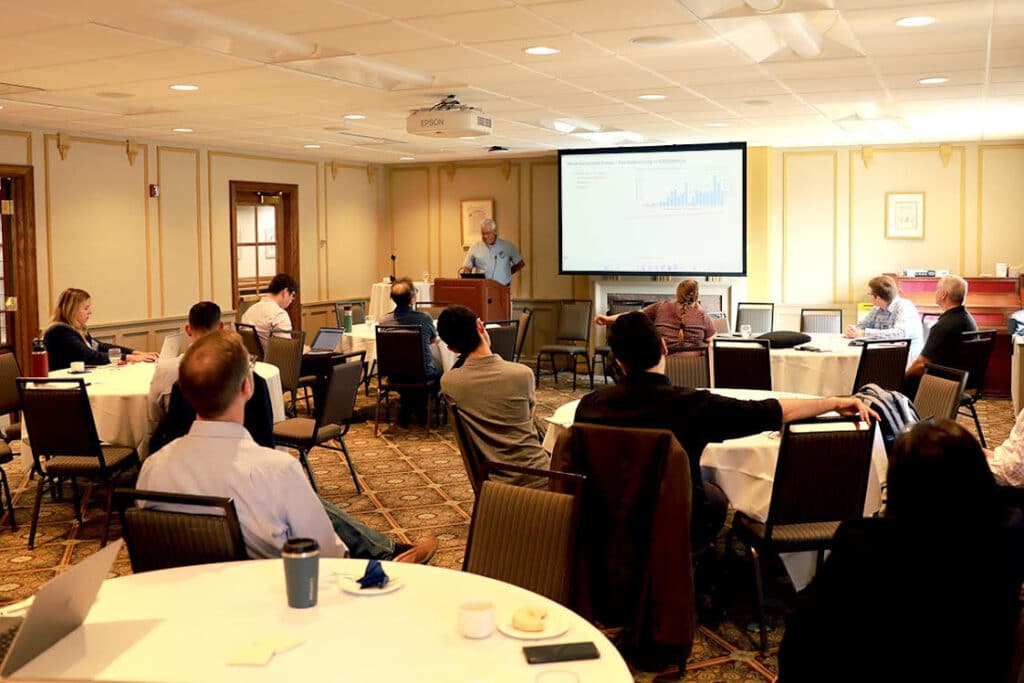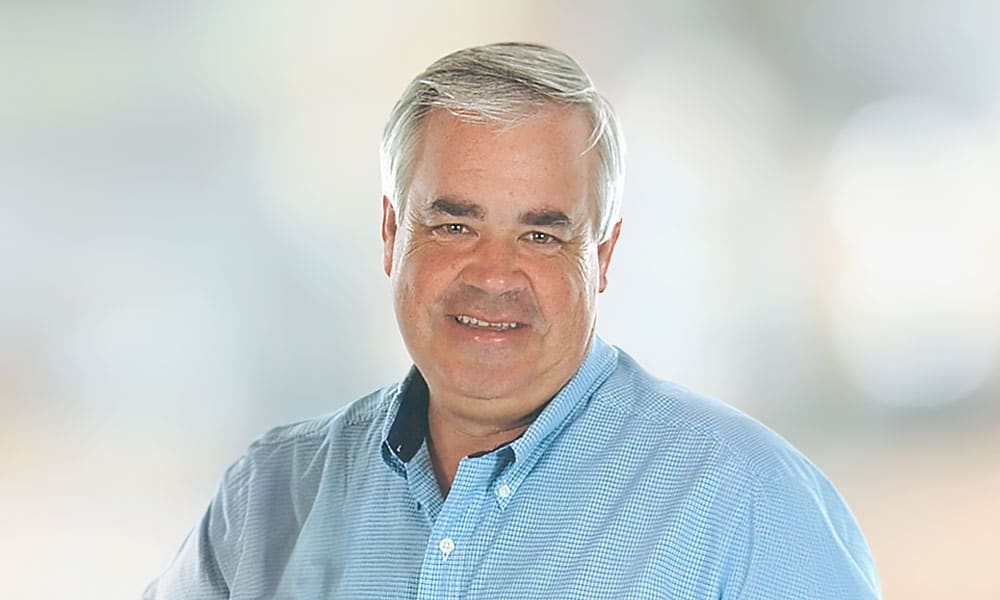When it comes to the challenge of decarbonization and diversification of America’s energy portfolio, Stephen Nolet knows it will take a collective effort to achieve the country’s goals.
Nolet, the Senior Director of Innovation and Technology for the wind turbine blade manufacturer TPI Composites, headquartered in Scottsdale, Ariz., made these intentions known when he joined the Integrative Systems + Design-hosted workshop on Manufacturing Feasible Pathways for a Clean Electronic Power Sector Aug. 18 at the Michigan League in Ann Arbor. Nolet discussed the wind energy landscape and how the industry can better equip itself to meet future challenges.
“I’m here because of our relationship through sponsored research that Michigan was awarded and invited TPI to participate,” Nolet said. “That’s been a wonderful collaboration to be introduced to students, to have transfers of information, and to help build a set of skills for these future graduates that will enter the workforce.”

TPI Composites has been in business for more than 50 years, with a focus on manufacturing composite wind blades that began in 2001. Since introducing that focus, TPI Composites has grown to account for approximately 38 percent of all onshore wind blades on a Megawatt-basis globally, excluding China, in 2022. This component of clean energy is critically important given the goal set forth by the administration of President Joe Biden of reaching 80 percent of renewable energy generation in America by 2030.
While Nolet endeavors to be on the cutting edge of the industry, he recognizes the importance of an integrative engineering education to prepare the workforce to confront complex problems and produce innovative solutions.
“It’s pretty easy to teach some of the chemistry and materials technology, but it’s very difficult to teach somebody to extrapolate their learning through critical thinking and application and to understand outcomes,” Nolet said. “Through internships and sponsored research, we’ve engaged everybody from the University of Tennessee at Knoxville to Purdue to Vanderbilt, and beyond. It’s an important part of building a workforce, that when they graduate they’re familiar with the problems.”
Moving beyond the importance of an integrative education, Nolet knows today’s students need to develop intangibles to help push through setbacks.
“There has to be an element of fearlessness and confidence,” he said. “If you approach a problem or an opportunity and you are fearless and confident in your skillset, and you apply that and drive it through, you learn and you can have an impact, and that’s the greatest asset we can create in these students and the future workforce.”
Occasions like the ISD-hosted workshop represent some of the best opportunities to move these issues forward in Nolet’s perspective.
“That’s really the value of this type of collaboration,” he said. “To the extent we can inform these students, the faculty, and other industry and lab participants on the problems we face individually and the problems we have in common, we come to create greater momentum to solve those problems.”
Steve Nolet collaborates with the Michigan team (PI Miki Banu, Co-PIs Kazu Saitou, Alan I. Taub, Theodore Freiheit, and Daniel Cooper) in a Department of Energy-sponsored project to design and manufacture revolutionary modular molds for wind blades longer than 120 meters. Their robot-based Additive Manufacturing of Lego-type modular molds provides a lightweight and cost effective solution for manufacturing American windmill blades. Examples include: a 30 percent cost saving for fabricating a 120m blade tooling compared to polymer composite additive manufactured molds, a 50 percent reduction in mold fabrication time and time to market, a 30 percent reduction in transportation cost of molds and blades, a 25 percent lightweighting of the mold compared to current molds, and extended mold life and module reusability with other blade configurations.
